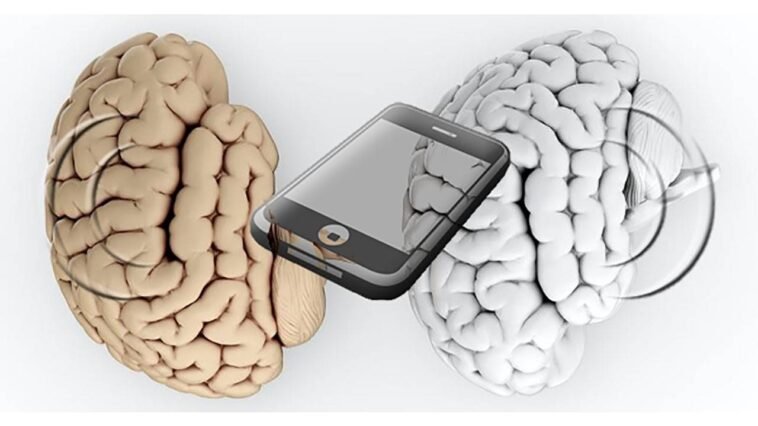Mobile Phones Are Impacting Your Health
Table of Contents
In this article, we’ll explore five surprising ways mobile phones are impacting your health and what you can do to minimize the risks. Mobile phones have become an integral part of our daily lives, and it’s hard to imagine a day without them. They help us stay connected with friends and family, get work done, and entertain ourselves. However, the convenience of these devices has also led to some unintended consequences for our health.
Disrupting Your Sleep
Studies have shown that the blue light emitted by mobile phones can interfere with your circadian rhythm, making it harder to fall asleep and stay asleep. This is because blue light suppresses the production of melatonin, a hormone that regulates sleep-wake cycles. The more time you spend on your phone before bed, the more likely you are to experience sleep disturbances.
To minimize the impact of mobile phones on your sleep, it’s recommended to avoid using your phone for at least an hour before bedtime. You can also enable the blue light filter on your phone or wear blue light-blocking glasses in the evening to reduce the amount of blue light exposure.
Straining Your Eyes
Looking at a small screen for extended periods of time can strain your eyes and cause headaches, blurred vision, and dry eyes. This is known as digital eye strain or computer vision syndrome, and it’s becoming more common as we spend more time on our phones and other digital devices.
To prevent digital eye strain, take regular breaks from your phone and other screens. Every 20 minutes, look away from your screen and focus on something in the distance for at least 20 seconds. You can also adjust the brightness and contrast of your phone to reduce eye strain.
Exposing You to Radiation
Mobile phones emit radiofrequency (RF) radiation, which is a type of electromagnetic radiation that can be absorbed by the body. While the long-term health effects of RF radiation are still being studied, some studies have suggested a link between mobile phone use and brain cancer.
To reduce your exposure to RF radiation, you can use a hands-free device or speakerphone when making phone calls. You can also limit the amount of time you spend on your phone and avoid carrying it in your pocket or bra.
Causing Posture Problems
Hunching over your phone for extended periods of time can lead to poor posture and neck pain, also known as “text neck.” This is because looking down at your phone puts extra pressure on your neck and spine.
To prevent text neck, hold your phone at eye level or use a phone stand. You can also perform neck stretches and exercises to strengthen your neck muscles.
Contributing to Addiction
Mobile phones and social media have been shown to have addictive properties, with many people feeling a compulsive need to check their phone or social media feeds. This can lead to anxiety, depression, and other mental health issues.
To minimize the risk of addiction, set boundaries around your phone use. You can turn off notifications, limit your social media use, and use apps that track and limit your screen time.
Read More:The Top 10 Must-Have Mobile Phones of 2023
Conclusion
While mobile phones have made our lives more convenient, they also come with some health risks. By being aware of these risks and taking steps to minimize them, you can continue to enjoy the benefits of mobile technology without compromising your health. Remember to take breaks from your phone, use it safely, and set boundaries around your phone use to maintain a healthy balance.
FAQs:
How does mobile phone use affect our sleep?
Mobile phones emit blue light, which can interfere with our circadian rhythm and make it harder to fall asleep and stay asleep. This is because blue light suppresses the production of melatonin, a hormone that regulates sleep-wake cycles. To minimize the impact of mobile phones on your sleep, avoid using your phone for at least an hour before bedtime, and consider using a blue light filter or wearing blue light-blocking glasses in the evening.
Can using a mobile phone cause eye strain?
Yes, looking at a small screen for extended periods of time can strain your eyes and cause headaches, blurred vision, and dry eyes. This is known as digital eye strain or computer vision syndrome. To prevent digital eye strain, take regular breaks from your phone and other screens, and adjust the brightness and contrast of your phone to reduce eye strain.
Is it true that mobile phones emit radiation?
Yes, mobile phones emit radiofrequency (RF) radiation, which is a type of electromagnetic radiation that can be absorbed by the body. While the long-term health effects of RF radiation are still being studied, some studies have suggested a link between mobile phone use and brain cancer. To reduce your exposure to RF radiation, use a hands-free device or speakerphone when making phone calls, limit your phone use, and avoid carrying your phone in your pocket or bra.
How can using a mobile phone affect our posture?
Hunching over your phone for extended periods of time can lead to poor posture and neck pain, also known as “text neck.” This is because looking down at your phone puts extra pressure on your neck and spine. To prevent text neck, hold your phone at eye level or use a phone stand, and perform neck stretches and exercises to strengthen your neck muscles.
Can mobile phone use lead to addiction?
Yes, mobile phones and social media have been shown to have addictive properties, with many people feeling a compulsive need to check their phone or social media feeds. This can lead to anxiety, depression, and other mental health issues. To minimize the risk of addiction, set boundaries around your phone use, turn off notifications, limit your social media use, and use apps that track and limit your screen time.




